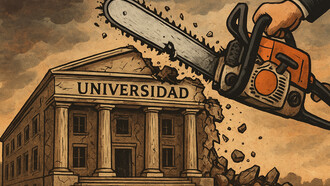In the times which we live in, money goes beyond its function as a mechanism for a means of exchange. It has evolved into what has come to define human beings in this epoch and determines their socioeconomic worth. Money is predominantly defined as the means for the payment of goods and services and has features such as durability, portability, divisibility and homogeneity. The definition stated would be a general concept on the term money, but to a certain extent how people define money is relative. Some see it as a necessity, an avenue to access comfort, while others as a definition of their self worth. The pedestal one places money would illuminate what is actually their personal definition of money. If placed on a high pedestal in one's life, it would have a different definition to those who see money to be of little importance to them.
A further explanation on the concept of money would lead to the term ‘success’ and how its validation is determined by the monetary value of an individual. Money has come to define success, and in the time we live in today, there is no other measurement of success such as fulfillment or peace, but only money has been recognized as such. In other words, the clamour for success in our world today has been narrowed distinctively to the need for money. This paradigm needs change, and a better formulated option should be introduced to the societal system. The definition of money should not be success, and also the definition of success should not be money. This now leads to the question, what actually is money and is one's full possession of money the only way to identify success?
In the same vein, money is the tool that has been introduced into the socioeconomic system that acts as a stimulus to the phenomenon of buying and selling. The clause here is that in what form can money take? As earlier stated, money means different things to people. Therefore, money can take the form of time. There is the trite saying 'money is time'. Money can also take the form of effort, knowledge, and to a large extent, skill. These are all transactional factors that take the form of money and in specific situations, replace paper money. The applicability of the definition of money that has been established in this work to these factors is practicable.
However, the world is evolving into something more complex and technological. Therefore making the terrain where money operates and it systems to be more diverse and dynamic. For instance, the emergence of cryptocurrency. This is a concept that a century ago would not have even been dreamt to become existent or realistic. This shows that money as an entity would continue to spread out branches bearing a variety of fruit. Hereby making it a situation of different means to one end. There is so much that is yet to be discovered about money and its peculiarities, but with time and further investigation on money as a whole, it will be predictable on the branches it has and what kind of fruits they're going to bear. Cryptocurrency is fast becoming the norm and realistically will soon become the ‘next big thing’. This is similar to when paper money was introduced rather than coins, and when coins were introduced rather than cowries as was used then in West Africa. This goes to show that money is most likely to evolve with time and what defines money today, might not be the definition in the next decade.
It is pertinent to note that there is an exponential decay of the value of money in the socioeconomic society today. People, despite having this immense love for money and are willing to go to any length to acquire it, are now observed at a reasonable number to spend it rather extravagantly. Then, what actually is the motive for acquiring money?
The basic motives for acquiring money, according to the Keynesian theory, are for transactional, precautionary and speculative motives. These motives could be said to cover all spheres of life, but it would be rightly stated that the motive for money goes beyond these motives. Humans have become so conditioned by our social institutions today to see money as the beginning and the end, hereby making the chase for it intense and more competitive. People yearn for it as earlier stated to define their self worth. The self worth of most people especially, the younger generation has become revolved around money and one would find out a young teenager who is already searching for a quick means to earn it. Ambition and impatience has to be juxtaposed in order to get what is the true motive of this young person's want for money. No doubt, there are young people who are genuinely in need of it, and so start their 'hustle' at a young age and most times end up with success stories. Then there is the other side of the coin in which those who are after money so as to belong, either to the trend, or start one themselves. But most times, these kinds of people can only dream to be trend setters, but with their mentality will never achieve such. If they do, it is mostly the wrong one. They find themselves trying to fit into a certain class of people, which in order to achieve that, they have to build a facade that would enable them to blend in easily. Marxist says that "society is the creation of man but man has become a slave to his creation". In the same vein, it should also be understood that money is the creation of man but man has become a slave to his creation.
Another motive for acquiring money is to avoid poverty. This is the most glaring answer to the question of ‘why do you want money?’. Poverty being the state of total lack and the inability to provide food, clothing and shelter for one self and family. Thus, explains the reason behind the repulsion of poverty and showcases the immense need to avoid it. Money as it has been established in this work, defines success in the society of this generation and validates it. Consequently, a lack of it automatically is resultant to poverty. Success commands the need for poverty to be excluded from one's life, and money is accepted as an avenue to achieve success. The presence of need brings out a hunger for ambition in man. Therefore, in order to avoid failure, eventual poverty, and to satisfy the strong thirst for ambition, the motive for money is realised.
The effects of money to the human at micro level and society at macro level is very vast. Moral decadence in society today is attributed as a major effect of money. Looking at this from the lens of society, one would affirm the feasibility in social organisation, and the unnecessary pressure from social institutions such as family, media and politics on humans to ‘get rich quickly’. Money has been blamed for the deterioration in the value system existential today.
Contrastingly, looking at it from the lens of an individual, the question that arises is, why should money be blamed for the failed value system? This leads to analysis on the reason for human actions. Are the actions and in-actions of humans a result of free will or the influence of social institutions and interactions? The answer to this lies in the consciousness of man. Certain actions and in-actions are as a result of the social conditioning which man has gone through, and his choice of the person that has it in use. In other words, it should be refuted that money is the cause of the social decadence in society today but rather, man is the cause of the social decadence.
Interestingly, amongst the various effects of money, a peculiar and if not the most important effect of money is its ability to change a person's socioeconomic and political status. One's position in the society is elevated by the amount of wealth he possesses. An individual with more wealth has a higher ranking in the society and more respect is conferred to him. Also, a society and in a larger scale nation that is deemed to have a large economic resource will have a say in the matters of international politics and other matters. There is no other concept that defines the class and social standing which demarcates or rather creates a gap between the rich and the poor.
Additionally, the importance of hard work in the creation of money is not to be downplayed in any form. This is a fact that is slowly being forgotten. In the equation that results to money, a necessary variable is hard work. This is what adds value to money and leads to money being earned in a honest way. The problem is that a lot of importance is not being attached to wealth and its creation as it used to be. The popular trend now is that, people are looking for every means to earn money with little or no effort. One of the means which has been adopted is fraud. Alarming enough, it is currently being integrated into societal norms and values leading to the normalization and acceptability of this crime. The occurrence of this is only possible because an important factor such as hard work is being undermined.
Conclusively, money is a broad term and all spheres of life are influenced by it. An exclusion of money from society would be an abysmal failure and result in chaos. A study further into money would reveal that it’s as slippery as a snake, an attempt to hold it tight and it would slip out of one's hand and reach. Money is also vain and with time it fades away and loses its substance. Nevertheless, the importance of it cannot be deterred by these facts and it also cannot be overemphasized. The wisdom to be applied here, in order for the creation of man which is money not to rule over man the creator is to introduce balance. As powerful as money may become, it should not take the place of certain priorities.
An attempt to explain what money is in its full capacity would be inexhaustible time and energy, constraining and to a large extent would still be lacking. This work has made an attempt to explain and expatiate on what money is and its intricacies. There is no doubt that money, being an important tool for survival in society, cannot be neglected. But it is also pertinent to note that it is a tool, and so there would be continuous emphasis for it to be used by man and not the other way around.
The value system of money is autochthonous to society. Foreign influences could be argued to have an upper hand, but it should be brought to notice that humans as social beings would react to situations on the basis of their interaction with their immediate social surroundings before foreign influence can be considered. Something to note when trying to assimilate the knowledge of what money is, one should understand that money is to be treated with respect, wisdom and prudence. With all these put into consideration, the question of what money is can be said: to be addressed.















